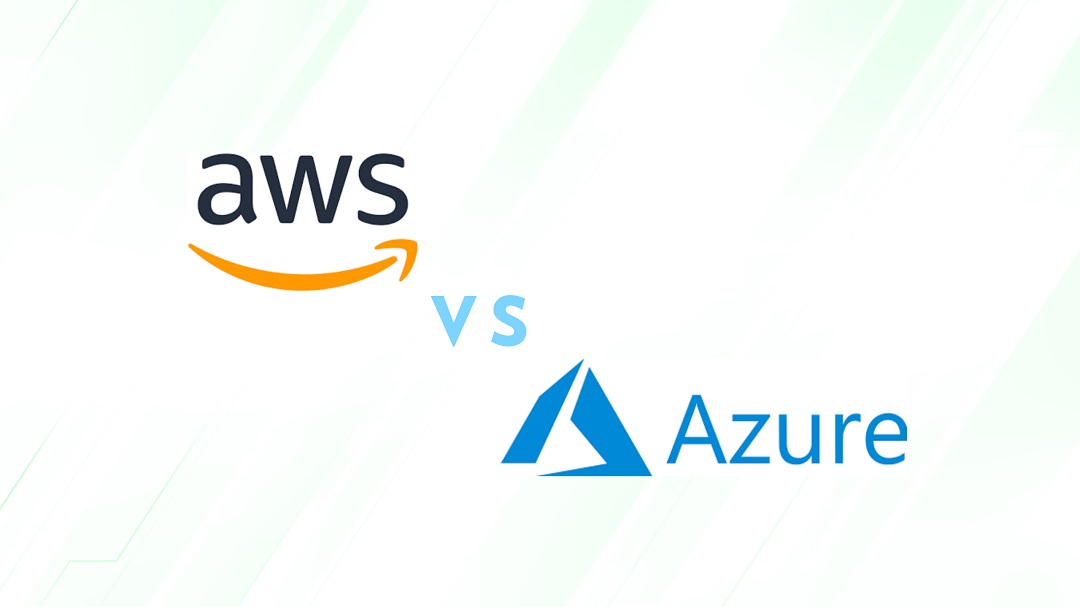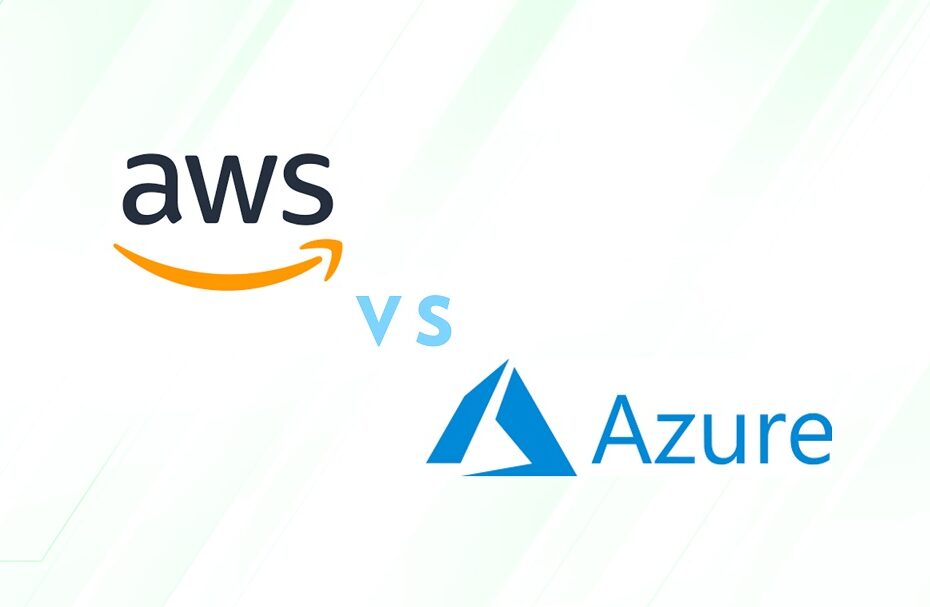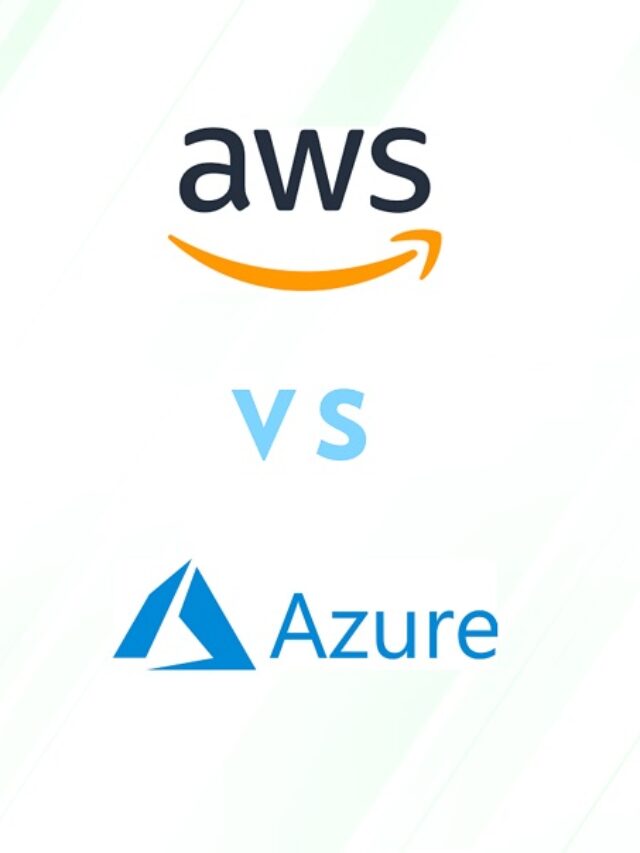AWS vs Azure Security Comparison: A Comprehensive Guide to Network Services
Introduction:
In today’s digital landscape, ensuring robust security measures is paramount for organizations. Two prominent players in the cloud computing realm, AWS, and Azure, offer a wide range of network services along with robust security features. This article aims to provide a comprehensive comparison of AWS and Azure security, focusing on their top functions, merits, and demerits. Additionally, we’ll explore the road map for both companies over the next five years, analyze their roles in-network services, and provide valuable insights into future predictions. So, let’s dive in and explore the intriguing world of AWS and Azure security.

Table of Contents:
Introduction
-
AWS and Azure: Overview and Key Offerings
-
AWS Security Features and Certifications
-
Azure Security Features and Certifications
-
AWS vs Azure: Security Comparison
-
5.1. Network Security
-
5.2. Data Center Security
-
5.3. Security Management and Monitoring
-
5.4. Compliance and Certifications
-
Road Map for AWS and Azure: A 5-Year Perspective
-
The Role of AWS and Azure in Network Services
-
Top Functions of AWS and Azure Security
-
Merits and Demerits of AWS and Azure Security
-
Future Predictions for AWS and Azure Security
-
FAQs: Answering Common Questions
-
Conclusion
AWS vs Azure Security Comparison
Section 2: AWS and Azure: Overview and Key Offerings
AWS and Azure are cloud computing platforms provided by Amazon and Microsoft, respectively. With their global reach, scalability, and reliability, both AWS and Azure have become go-to choices for organizations seeking flexible and secure cloud solutions.
Section 3: AWS Security Features and Certifications
AWS provides a combo of many security features like identity and web application firewalls (WAFs), access management (IAM), network security groups (NSGs), as well as data encryption. AWS also holds a wide range of certifications, such as ISO 27001, SOC 1 and SOC 2, and FedRAMP, ensuring compliance with industry standards and regulations.
Section 4: Azure Security Features and Certifications
Azure offers a competitive set of security features, which ensure gives services like Azure Firewall, Azure Security Center, Azure DDoS Protection. and Azure Active Directory. Azure also complies with various certifications, such as ISO 27001, SOC 1 and SOC 2, HIPAA, and GDPR, assuring customers regarding their data security and privacy.
Section 5: AWS vs Azure: Security Comparison
In this section, we will delve into a detailed comparison of AWS and Azure security across various aspects, including network security, data center security, security management and monitoring, and compliance and certifications. By analyzing the strengths and weaknesses of each platform, organizations can make informed decisions based on their specific security requirements.
Section 6: Road Map for AWS and Azure: A 5-Year Perspective
Looking ahead, both AWS and Azure have ambitious road maps to further enhance their security offerings. This section explores the strategic plans of both companies, including investments in emerging technologies, expanding global data center infrastructure, and incorporating advanced threat intelligence systems.
Section 7: The Role of AWS and Azure in Network Services
AWS and Azure play pivotal roles in providing network services to organizations of all sizes. Their scalable infrastructure, comprehensive security measures, and extensive service portfolios empower businesses to build, deploy, and manage secure network environments efficiently. This section highlights the significance of AWS and Azure in the network services landscape.
Section 8: Top Functions of AWS and Azure Security
Both AWS and Azure offer a wide range of security functions that are crucial for safeguarding sensitive data and ensuring the integrity of network environments. Here are some of the key functions provided by each platform:
8.1. AWS Security Functions:
Identity and Access Management (IAM): AWS IAM enables organizations to manage user identities and access privileges effectively.
Virtual Private Cloud (VPC): AWS VPC allows users to create isolated virtual networks within the cloud. It provides secure and private connectivity to resources and allows fine-grained control over network traffic.
AWS Shield:
It helps protect applications and websites from volumetric, state-exhaustion, and application-layer attacks.
Encryption: AWS offers various encryption services, such as AWS Key Management Service (KMS) and AWS CloudHSM, to protect data at rest and in transit. These services enable organizations to encrypt their data using industry-standard algorithms and manage encryption keys securely.
Monitoring and Logging:
AWS provides services like AWS CloudTrail and Amazon GuardDuty for monitoring and logging. These services offer visibility into user activity, API calls, and potential security threats, helping organizations detect and respond to security incidents promptly.
8.2. Azure Security Functions:
Azure Active Directory (Azure AD): Azure AD is a comprehensive identity and access management solution. It enables organizations to manage user identities, enforce multi-factor authentication, and control access to Azure resources and SaaS applications.
Azure Security Center:-
Azure Security Center provides centralized security management and threat protection for Azure resources. It offers continuous monitoring, threat detection, and security recommendations to help organizations strengthen their security posture.
Azure Firewall:-
Azure Firewall is a cloud-native network security service that offers inbound and outbound traffic filtering for virtual networks. It helps organizations protect their applications and data from unauthorized access.
Azure Information Protection: Azure Information Protection allows organizations to classify and protect their sensitive data by applying labels and encryption. It ensures that data remains secure even when shared internally or with external parties.
Security Monitoring and Analytics:-
Azure offers services like Azure Monitor and Azure Sentinel for security monitoring and analytics. These services enable organizations to detect, investigate, and respond to security incidents using advanced threat intelligence and machine learning capabilities.
Section 9: Merits and Demerits of AWS and Azure Security
While both AWS and Azure provide robust security features, it is essential to consider their merits and demerits to make an informed decision. Here are some key points to consider:
9.1. AWS Security Merits:
Extensive range of security services and features
Well-established track record and industry recognition
Strong focus on compliance and certifications
Scalable and flexible infrastructure
Integration with other AWS services for seamless security management
9.2. AWS Security Demerits:
The steeper learning curve for beginners
Complexity in managing security at scale
The pricing structure can be complex, with additional costs for certain services
9.3. Azure Security Merits:
A comprehensive suite of security services and tools
Integration with h Microsoft ecosystem, including Active Directory
Strong hybrid cloud capabilities
Simpler pricing model for some services
An extensive global network of data centers
9.4. Azure Security Demerits:
Relatively smaller market share compared to AWS
Limited support for certain niche or specialized services
Requires familiarity with Microsoft technologies for optimal utilization
Section 10: Future Predictions for AWS and Azure Security
AWS and Azure will heavily invest in enhancing security offerings the as cybersecurity landscape evolves. Here are some future predictions
Section 10: Future Predictions for AWS and Azure Security
AWS and Azure’s security offerings will evolve with the changing cybersecurity landscape through heavy investments.
10.1. Advanced Threat Detection and Response:
Both AWS and Azure will continue to invest in advanced threat detection and response capabilities.
Real-time monitoring, behavioral analytics, and automated incident response will play a crucial role in mitigating risks.
10.2. Container Security:
As containerization technologies like Docker and Kubernetes gain popularty, AWS and Azure prioritize robust container security. This will include features like container image scanning, runtime protection, and vulnerability management to ensure the security of containerized applications and environments.
10.3. Cloud-Native Security Solutions:
As more workloads shift to the cloud, the need for cloud-native security solutions will surge. AWS and Azure will develop and expand their native security offerings, providing seamless integration with their respective cloud platforms.
10.4. Zero Trust Architecture:
The concept of Zero Trust, which assumes no inherent trust within the network, will gain more prominence in the future. Both AWS and Azure are expected to incorporate Zero Trust principles into their security frameworks, emphasizing identity and access management, multi-factor authentication, and granular access controls. This approach will enhance security by reducing the potential attack surface and implementing stricter access policies.
10.5. Compliance and Regulatory Support:
Compliance requirements and regulations will continue to shape the cloud security landscape. AWS and Azure will adapt their security offerings to meet evolving compliance standards, such as GDPR, HIPAA, and industry-specific regulations. They will provide tools and features to help organizations achieve and maintain compliance within their cloud environments.
10.6. Collaboration and Threat Intelligence Sharing:
As cyber threats become increasingly sophisticated, AWS and Azure are likely to foster collaboration and sharing of threat intelligence among their customer base. This will enable organizations to benefit from collective knowledge and insights, strengthening their overall security posture. Threat intelligence feeds, security communities, and joint initiatives will facilitate proactive defense against emerging threats.
10.7. Continuous Security Monitoring and Auditing:
AWS and Azure will continue to enhance their security monitoring and auditing capabilities. They will provide organizations with more granular visibility into their cloud environments, real-time alerts, and comprehensive audit logs. This will enable proactive threat detection, rapid incident response, and streamlined compliance reporting.
Conclusion:
AWS and Azure are at the forefront of cloud security, offering a comprehensive range of features and services to protect organizations’ digital assets. As the threat landscape evolves, both companies are committed to staying ahead of emerging security challenges. By understanding the top functions, merits, and demerits of AWS security and Azure Security organizations can make informed decisions and implement robust security measures in their cloud environments. Looking towards the future, AWS and Azure will relentlessly innovate and invest in advanced security tech to safeguard cloud data and infrastructure.
Also Read:-


Reviews